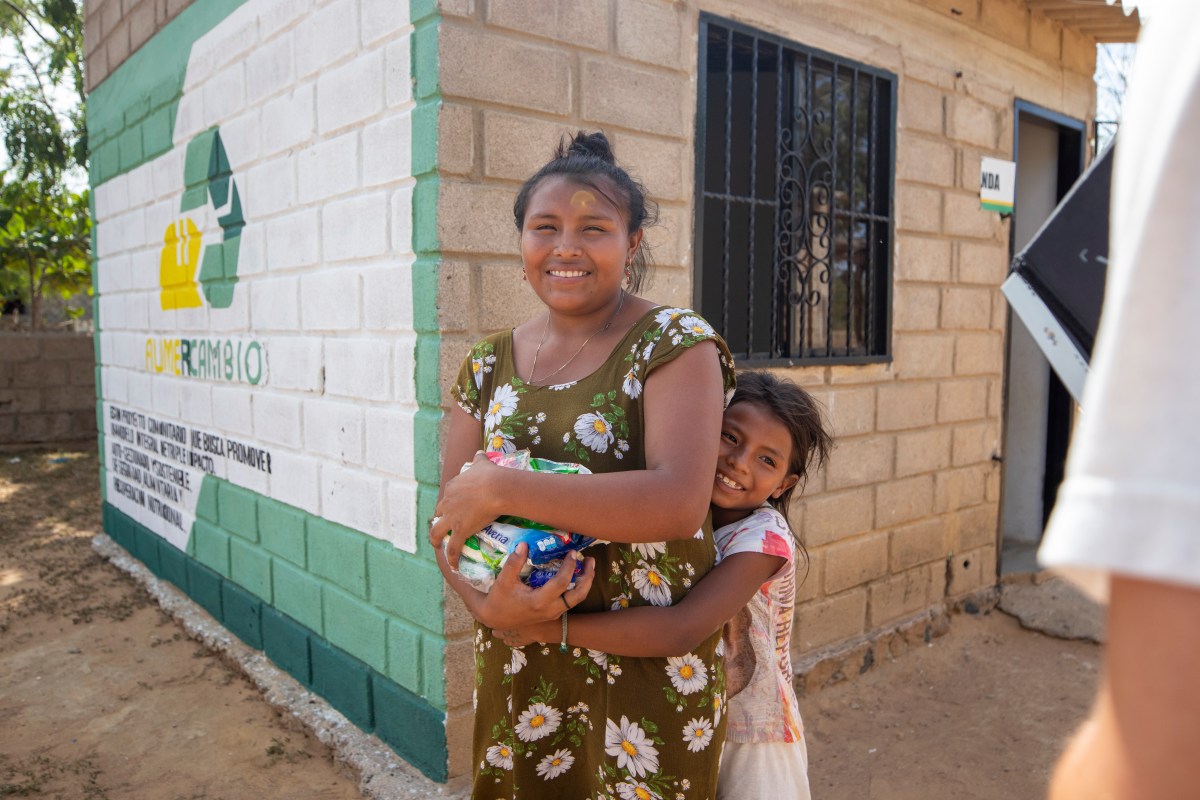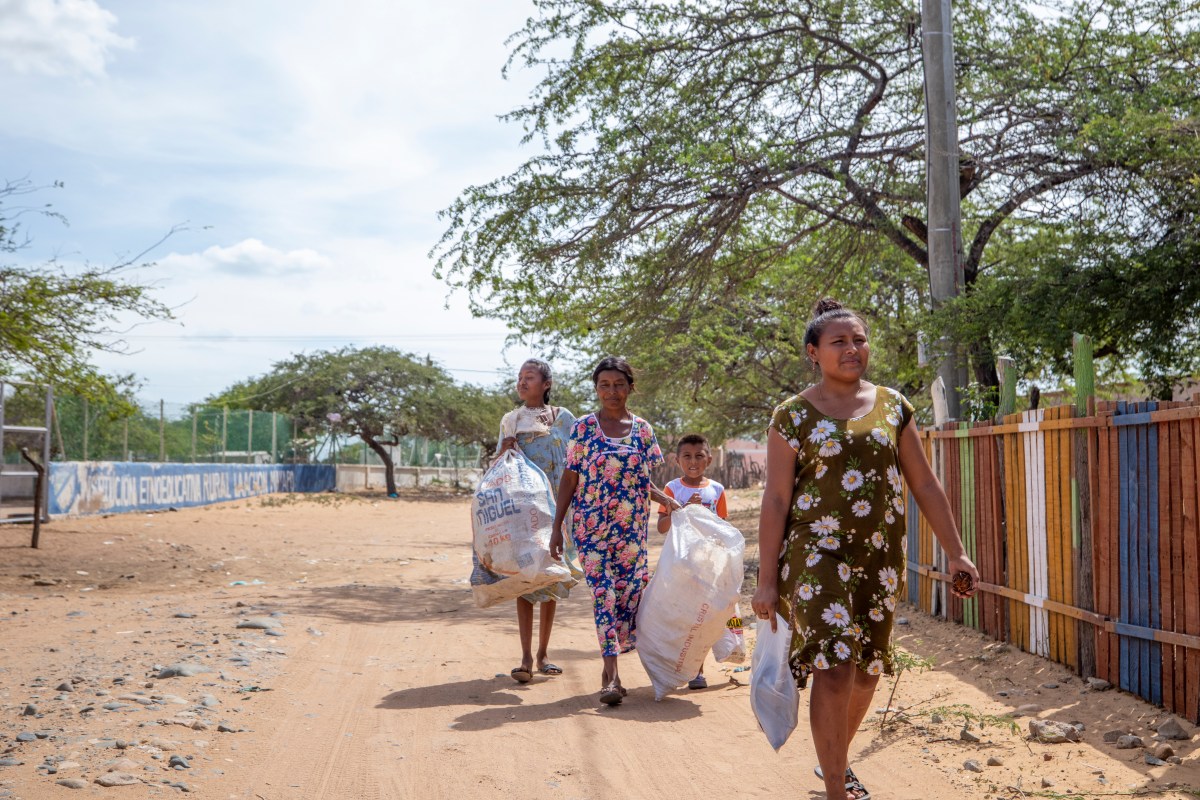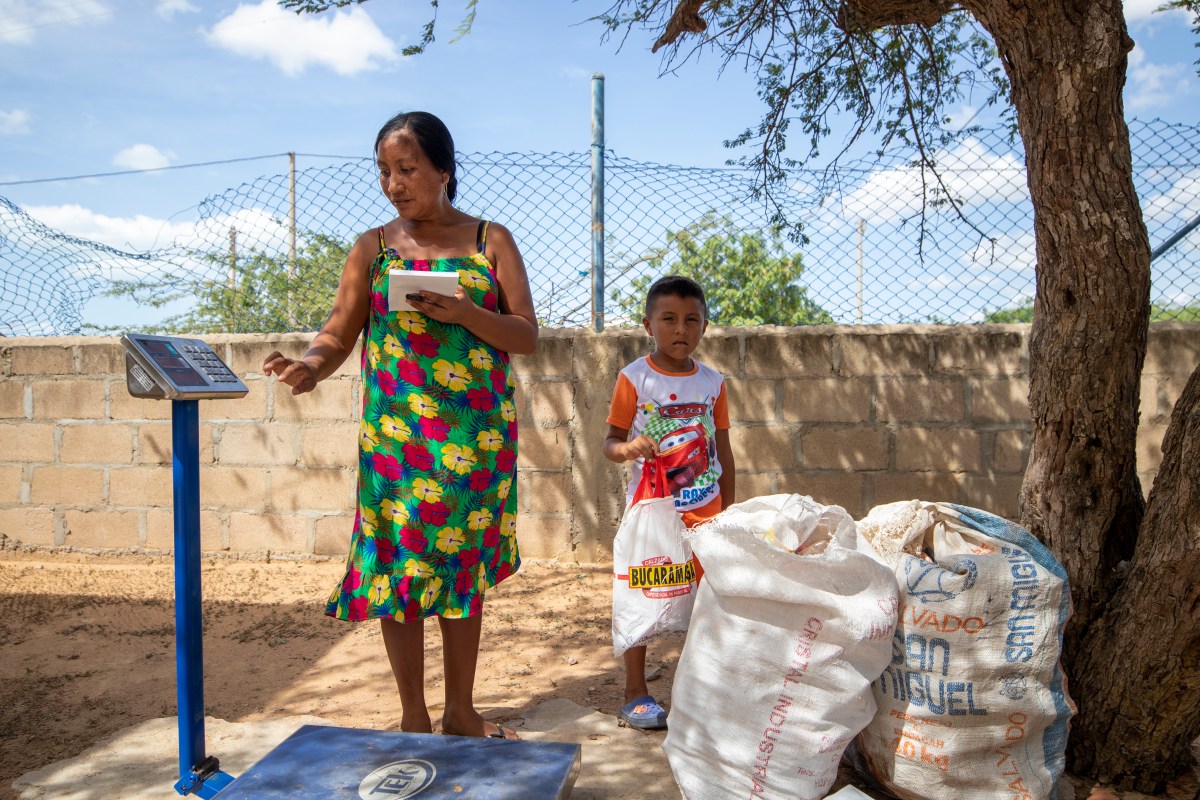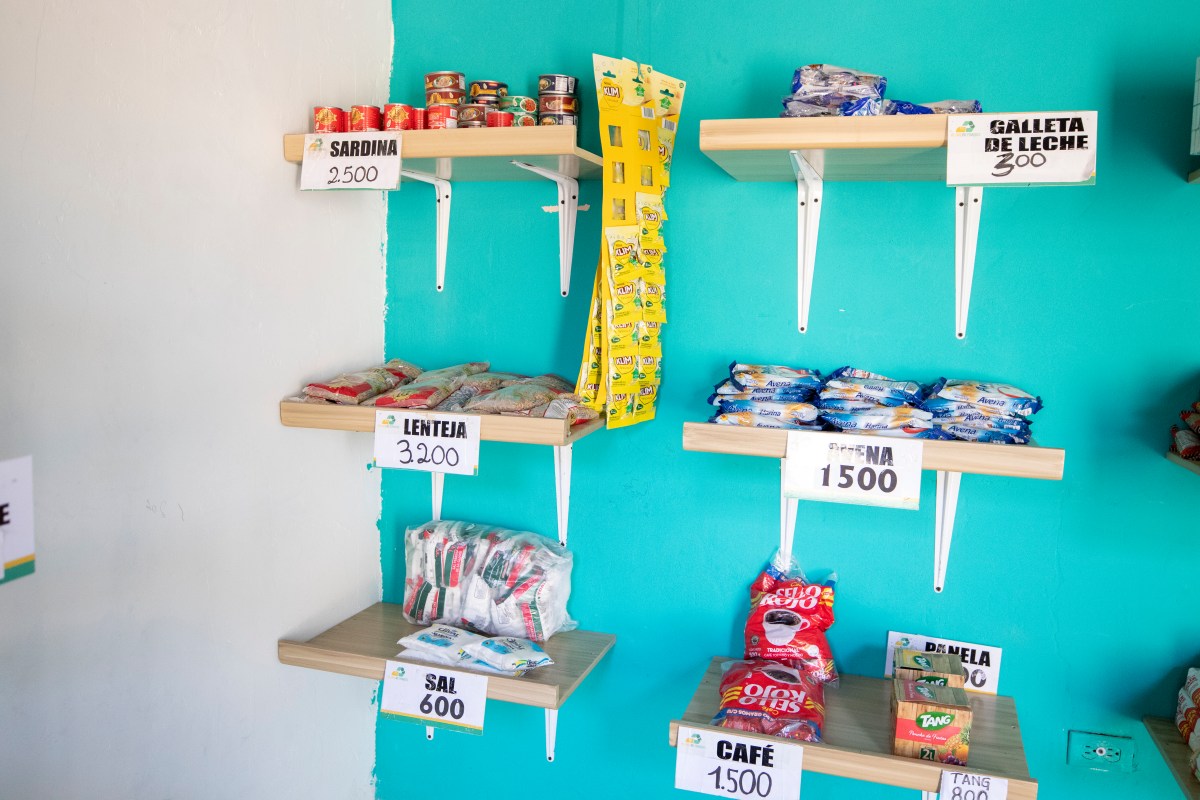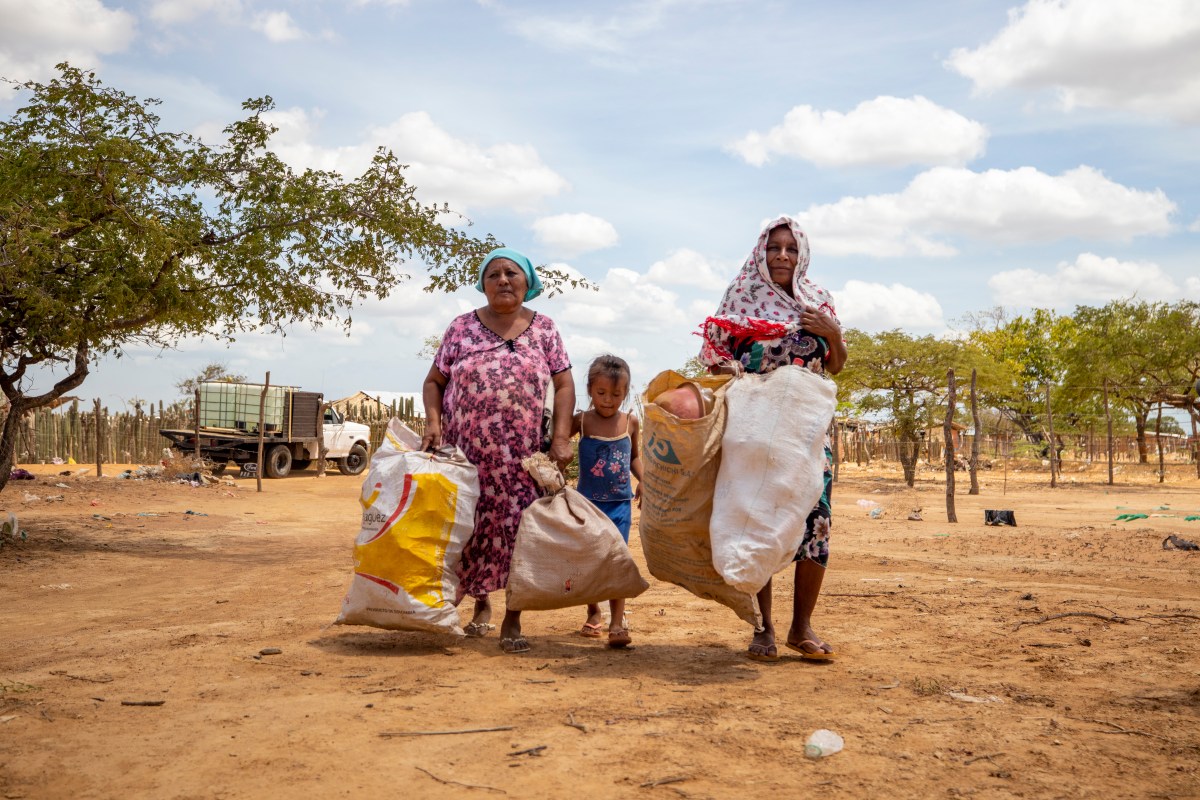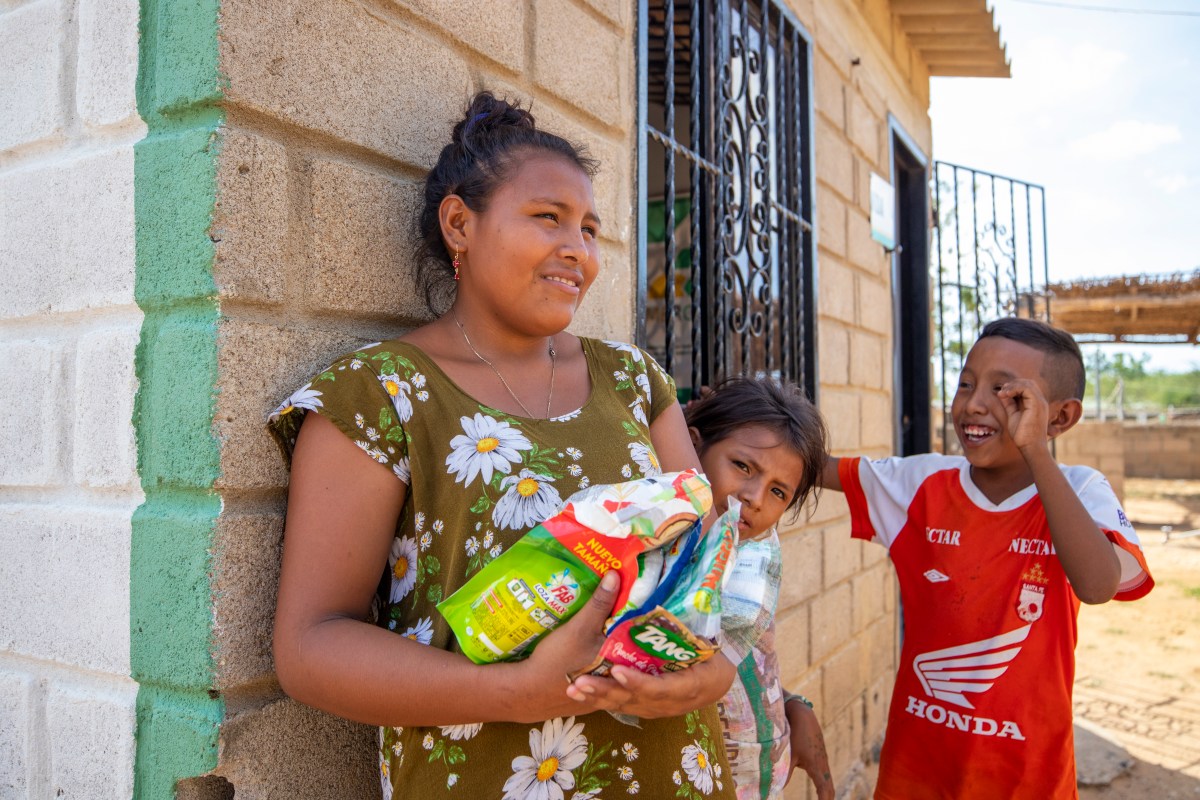A hot humid wind blows across the desertified terrain, scattering plastic trash into the surrounding cacti and spiny bushes. This terrain in the La Guajira peninsula of northeast Colombia is harsh, untamed, and inhospitable. Coal mining, climate change, and corruption have dried up the rivers and streams which the Wayuu tribe, an indigenous community living here for centuries, relies on for farming. Water scarcity has destroyed the Wayuu’s farming livelihoods, contributing to food insecurity and chronic malnutrition.
Not only does trash contribute to pollution, but it also harms the scrawny goats coming to graze on the sun-baked scrubland. Waste and plastic bags get tangled in the brush dotting the landscape. When the goats graze, they inadvertently eat the plastic trash, which sometimes kills them, further impairing the livelihoods of the Wayuu.
Goats have real significance for Wayuu families, acting as a type of family savings account. Goats are used as dowries, to pay off debts, or as downpayments. Most families have one, and even if a family is hungry, they will not slaughter their goat. Having one die from eating plastic is a financial devastation for an already vulnerable family.
Where some see trash, we see opportunity. That’s why our community of peacemakers is working to clean up the local environment and take a bite out of malnutrition with our recycling-for-food program. Best of all, this project is sustainable.
This is how our recycling-for-food program works. Working through our local partners, members of the Wayuu community learn how to classify waste and collect what can be recycled. They bring their recyclables to our partner’s center, where it is weighed and assigned a point value. Participants redeem their points for food items, hygiene products, household necessities, or whatever they need at our partner’s store, which is conveniently located next to the center and charges far less than regular shops do. A local company buys the recyclable trash and with that money, the store is restocked.
With unemployment and poverty rates high within the Wayuu community, our recycling-for-food project is the only means some families have to access food. One young mother brings in plastic waste daily to sustain her family. For those who don’t live close to the recycling center, a temporary store is regularly set up near the settlements with a scale to weigh recycled waste in three settlements, expanding reach.
This project is changing the story for the Wayuu by providing positive environmental, economic, and social impacts on the Wayuu community. Community members gain environmental awareness and clean up trash in their communities, thereby reducing pollution. Food insecure people have consistent access to the food they want and need at a cost they can afford. And, malnourished grandparents, parents, and children regain their health. This project complements our medical services project by also providing vital nutritional information for those recovering from malnutrition.
When this past rainy season came to La Guajira, the desertified soil in the settlements we support couldn’t hold the heavy rainfall. The flooding was so intense that people had to go to temporary shelters. We pivoted our programming and responded fast where help was needed most. Working with our local partners, we brought emergency food relief and hygiene kits to our Wayuu friends displaced to shelters until the local authorities coordinate a local response.
Listening to what people need. Being flexible in programming. Going where help is needed most. These are the cornerstones of how our community of peacemakers helps change the story for vulnerable people everywhere. With our recycle for food project, we are changing the story for the Wayuu in Colombia, empowering them to help themselves and their communities.
